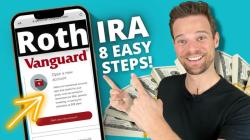How to buy muni bonds?
Buying municipal bonds, also known as munis, can be a relatively straightforward process. Here's a step-by-step guide on how to buy municipal bonds:
Understand Municipal Bonds:
- Before you start, make sure you understand what municipal bonds are. Municipal bonds are debt securities issued by state, local, or municipal governments to raise funds for various public projects, such as building schools, roads, or water treatment facilities.
Determine Your Investment Goals:
- Define your investment objectives, including the desired yield, maturity date, and risk tolerance. Understanding your goals will help you select the right municipal bonds for your portfolio.
Select a Brokerage Account:
- You'll need a brokerage account to buy and trade municipal bonds. You can choose between a traditional full-service brokerage or an online discount brokerage. Compare fees, services, and research tools to find the right fit for your needs.
Research Municipal Bonds:
- Research municipal bonds that align with your investment goals. You can find information on bonds issued by various municipalities on financial news websites, bond rating agencies, and your brokerage platform. Look for details such as the bond's issuer, credit rating, coupon rate, and maturity date.
Check Bond Ratings:
- Pay attention to the credit ratings assigned to the municipal bonds by credit rating agencies like Moody's, Standard & Poor's, and Fitch. Higher-rated bonds are generally considered lower risk but may offer lower yields.
Place an Order:
- Once you've chosen a municipal bond to buy, place an order through your brokerage account. You can typically place different types of orders, including market orders, limit orders, or stop orders. Choose the order type that suits your preferences.
Specify Quantity and Price:
- Indicate the quantity of municipal bonds you want to purchase and specify the price at which you are willing to buy them if you are using a limit order. Keep in mind that municipal bonds are often traded in minimum denominations, such as $5,000 or $10,000.
Review and Confirm:
- Review your order details to ensure they are accurate. Verify the issuer, bond information, and the total cost of the purchase. Once you're satisfied, confirm the order.
Settlement and Payment:
- After your order is executed, you'll need to make payment to settle the trade. The funds required to purchase the bonds will be deducted from your brokerage account.
Receive Confirmation and Ownership:
- You will receive a confirmation statement from your brokerage, indicating that you now own the municipal bonds. Keep these records for your tax and investment documentation.
Monitor Your Investments:
- Keep an eye on your municipal bond investments. They will pay periodic interest (coupon payments) until maturity. When the bonds mature, you will receive the principal amount back.
Consider a Bond Ladder:
- Some investors create bond ladders by purchasing bonds with staggered maturities. This strategy can help manage interest rate risk and provide a consistent income stream.
Remember that municipal bond prices and yields can fluctuate, and interest income from municipal bonds may be subject to federal and state taxes (although some municipal bonds are tax-exempt). It's essential to stay informed about the tax implications and potential risks associated with your municipal bond investments. Consulting with a financial advisor or tax professional can also provide valuable guidance based on your individual financial situation and goals.
Purchasing Municipal Bonds: A Step-by-Step Guide
- Choose a broker. You can buy municipal bonds through a variety of brokers, including banks, investment firms, and online brokers. It is important to choose a broker that is reputable and has experience trading municipal bonds.
- Research the bonds. Before you buy any municipal bonds, it is important to research them carefully. This includes understanding the credit quality of the issuer, the yield on the bonds, and the maturity date. You can find this information on websites such as the Municipal Securities Rulemaking Board (MSRB) and Moody's Investors Service.
- Place an order. Once you have chosen some municipal bonds that you want to buy, you can place an order with your broker. Your broker may require you to fill out a new account application if you do not already have an account with them.
- Pay for the bonds. Once your order has been placed, you will need to pay for the bonds. You can do this by transferring money from your bank account to your brokerage account.
- Receive the bonds. Once you have paid for the bonds, you will receive them in your brokerage account. You can then hold the bonds until maturity or sell them on the secondary market.
How to Buy Muni Bonds: Tips for Investors
Here are some tips for investors who are considering buying municipal bonds:
- Understand the risks. Municipal bonds are generally considered to be safe investments, but there is always some risk involved. For example, if the issuer of the bond defaults, you may not get all of your money back.
- Consider your investment goals. Municipal bonds can be a good investment for investors who are looking for a safe investment with a steady stream of income. However, they may not be the best investment for investors who are looking for high returns or capital appreciation.
- Diversify your portfolio. It is important to diversify your portfolio by investing in a variety of asset classes, including municipal bonds. This will help to reduce your risk if one asset class underperforms.
Investing in Municipal Bonds: The Buying Process Explained
The buying process for municipal bonds is similar to the buying process for other types of bonds. However, there are a few things to keep in mind.
First, municipal bonds are typically sold in denominations of $5,000 or more. This means that you will need to have a significant amount of money to invest in municipal bonds.
Second, municipal bonds are traded on the over-the-counter (OTC) market. This means that there is no central exchange where they are traded. This can make it more difficult to find buyers and sellers for municipal bonds.
Finally, municipal bonds are not subject to federal income tax, but they may be subject to state income tax. It is important to check with your state tax advisor to determine if you will be liable for state income tax on your municipal bond earnings.
If you are considering investing in municipal bonds, it is important to do your research and understand the risks involved. You should also consult with a financial advisor to determine if municipal bonds are a good investment for you.













